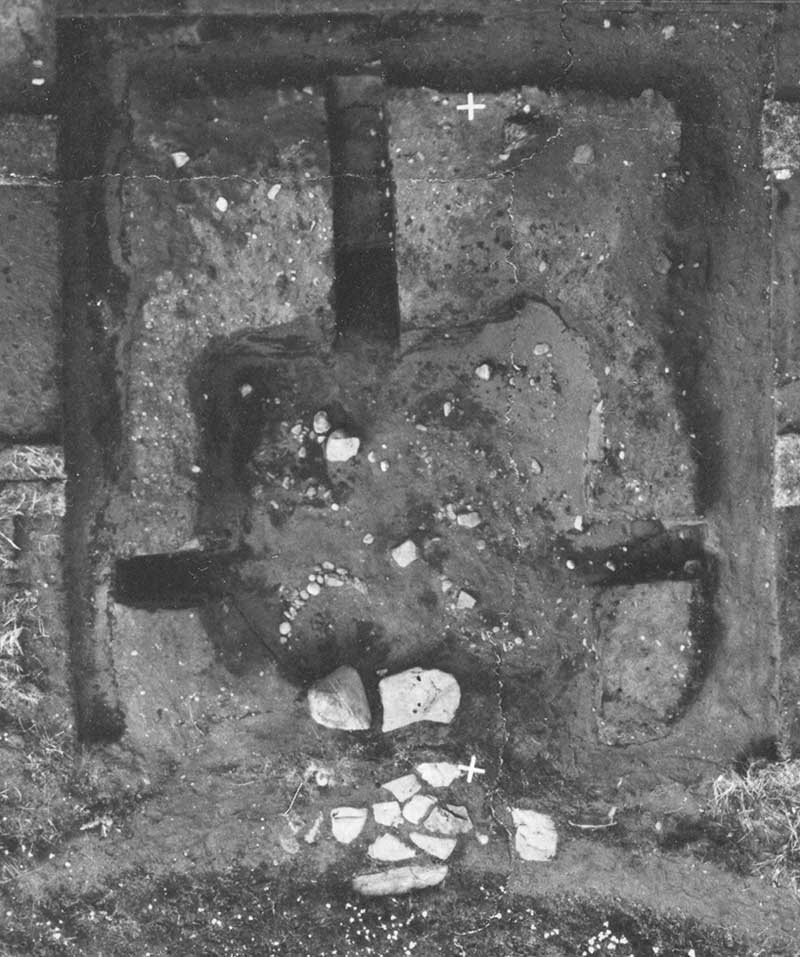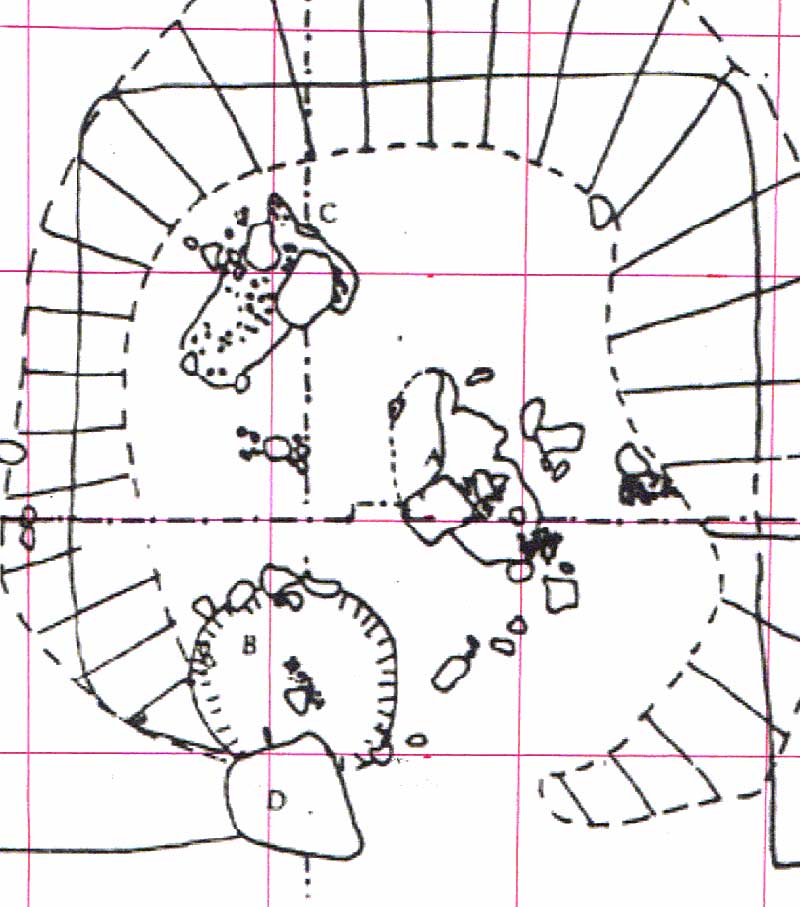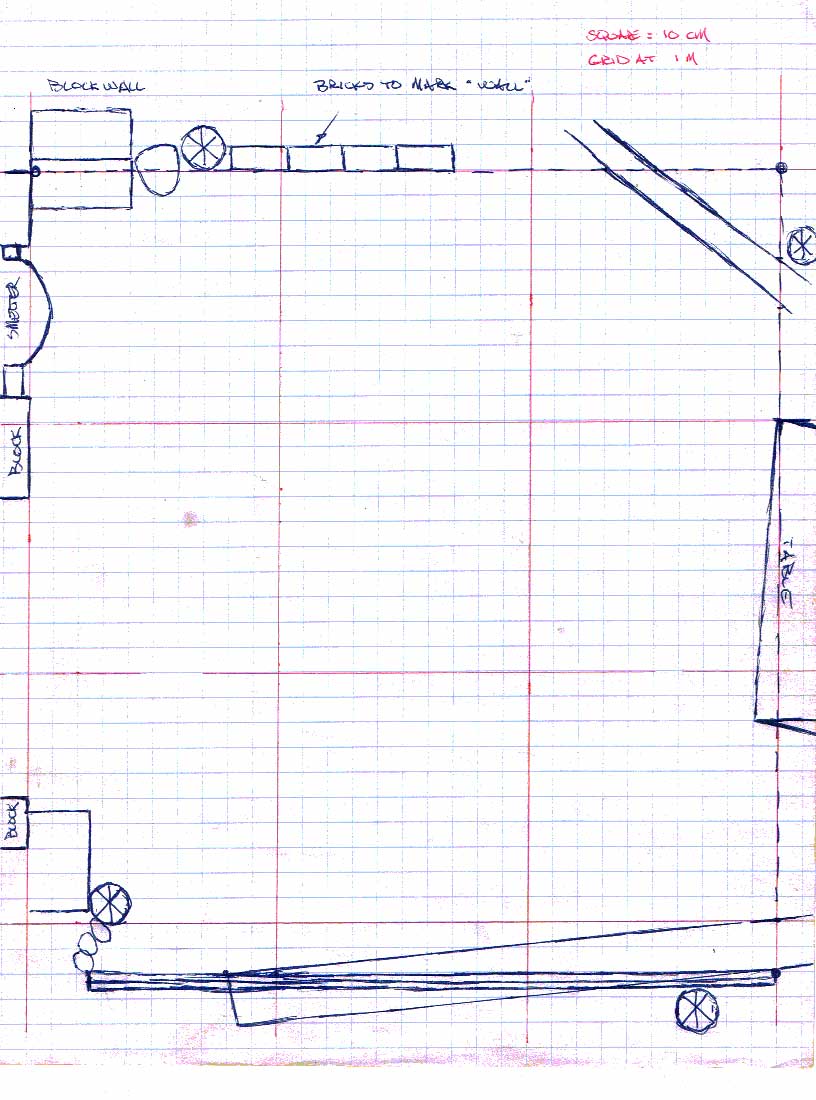L'Anse aux Meadows Smelt - Working Area
(This post is a mirror from Darrell's 'Hammered Out Bits' blog)
One of the specific challenges in the recreation smelt for L'Anse aux Meadows NHSC is working inside the same physical set up that is suggested by the archaeology:

Overhead photo from 1974 excavation

Scaled drawing (1 meter grid)
The photograph and illustration above were kindly provided to me by Dr. Birgitta Wallace.
In the photo, the arrangement of flat stones seen in the lower centre are not part of the artifact set. Those stones were placed to protect the archaeological layer by Ingstad & Stine at the close of their original excavations in the 1970's. The largest stone in that area (lower grouping, but upper left) is in fact part of the artifacts.
The illustration to the right has been slightly enlarged (to match my workspace drawing below) and I have added the 1 metre grid to it.

This is a drawing of the current smelt working area here at Wareham, with a scale matching the archaeological drawing above.
You can see that the overall size of building J (what is described as 'the furnace hut' or 'the smithy' in the original reports) is roughly 3 x 3 metres. The exact measurements in Dr Wallace's 1974 report is a width of 290 cm and length of 320 cm. As you can see, we can closely match those measurements under the overhead of our current work area.
In the next posting, I will start talking about just what the archaeology may (or may NOT) tell us about what happened at Vinland about 1000 AD.
One of the specific challenges in the recreation smelt for L'Anse aux Meadows NHSC is working inside the same physical set up that is suggested by the archaeology:

Overhead photo from 1974 excavation

Scaled drawing (1 meter grid)
The photograph and illustration above were kindly provided to me by Dr. Birgitta Wallace.
In the photo, the arrangement of flat stones seen in the lower centre are not part of the artifact set. Those stones were placed to protect the archaeological layer by Ingstad & Stine at the close of their original excavations in the 1970's. The largest stone in that area (lower grouping, but upper left) is in fact part of the artifacts.
The illustration to the right has been slightly enlarged (to match my workspace drawing below) and I have added the 1 metre grid to it.

This is a drawing of the current smelt working area here at Wareham, with a scale matching the archaeological drawing above.
You can see that the overall size of building J (what is described as 'the furnace hut' or 'the smithy' in the original reports) is roughly 3 x 3 metres. The exact measurements in Dr Wallace's 1974 report is a width of 290 cm and length of 320 cm. As you can see, we can closely match those measurements under the overhead of our current work area.
In the next posting, I will start talking about just what the archaeology may (or may NOT) tell us about what happened at Vinland about 1000 AD.
Labels: iron smelting










0 Comments:
Post a Comment
<< Home